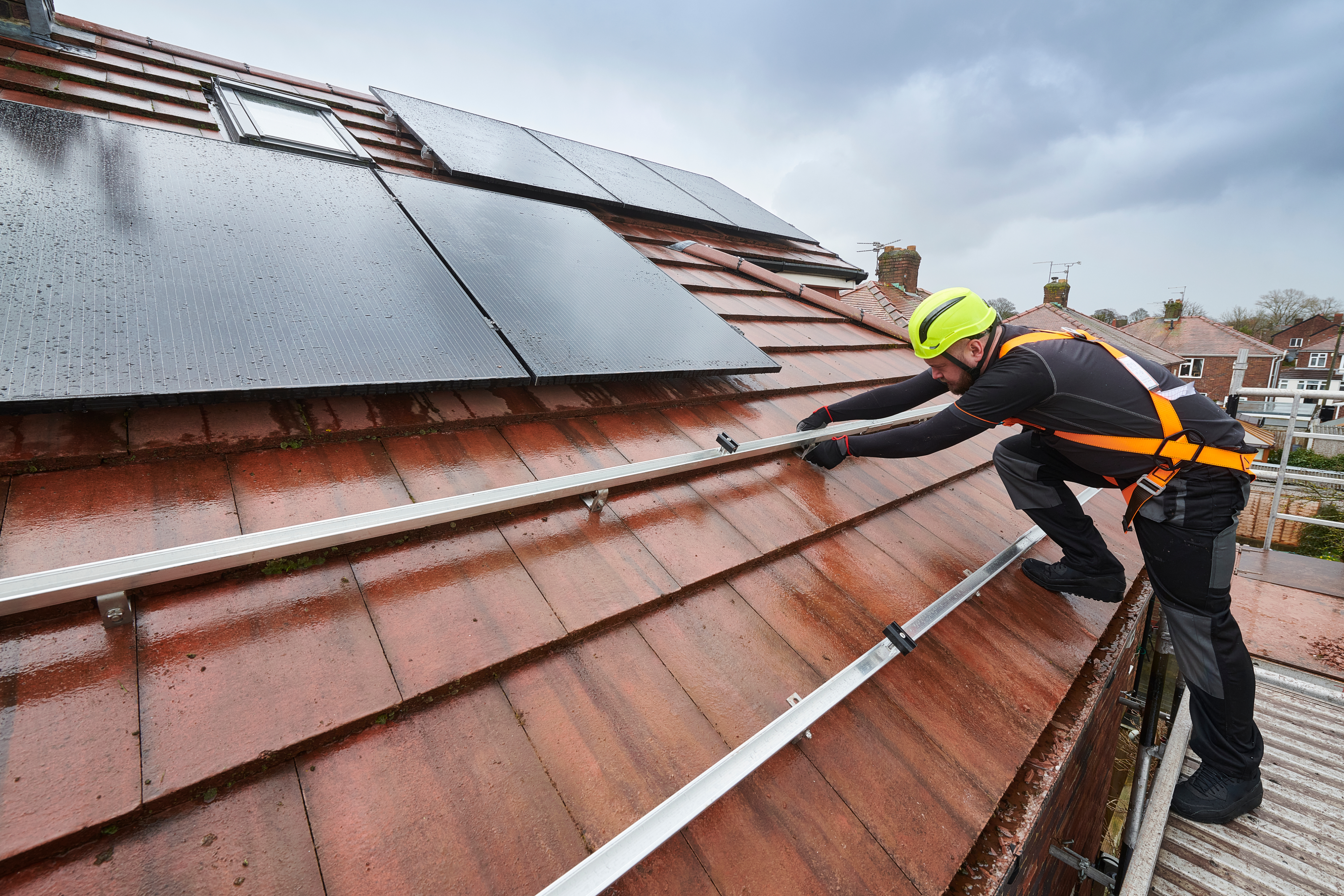Buying a heat pump
Learn how the technology works, what to expect from the installation process, and available finance options.
AWARD WINNING HEATING AND SOLAR INSTALLATION SPECIALISTS
AWARD WINNING SOLAR INSTALLATION SPECIALISTS
Award Winning Installer | Trustmark Approved | All-in-One Energy Experts | Nationwide Coverage
Struggling to keep your home warm without the high energy bills? Air source heat pumps offer an efficient way to keep your home warm and your bills under control, especially if you’re replacing an older system such as electric heaters, LPG or oil boilers.
Whether you’re a homeowner or landlord, you could access government grants or flexible finance to make the switch more affordable than you may think.

Air source heat pumps are becoming popular with homeowners who want low-carbon heating, and for good reason. With the right setup, they deliver impressive efficiency and long-term savings, particularly when they are combined with proper home insulation.
The benefits:

Whether you're upgrading an old boiler or heating system, improving your EPC rating, or just curious about how heat pump technology works, we can support you.
Learn how the technology works, what to expect from the installation process, and available finance options.
Understand how heat pumps work, and why they're more cost-efficient than electric heaters, LPG or oil boilers.
Learn more about upgrading your rental properties with low-carbon heating, and how it helps landlords meet EPC targets.
Interested in installing a heating pump? See what financial support and funding is available.

At LMF, we install high-performance air source heat pumps for both residential homeowners and private landlords across the UK.
As an MCS-certified installer with a proven track record in renewable energy solutions, we’re trusted for our expertise, smooth installations, and exceptional customer care. Whether you're funding your upgrade or applying for a government grant, we’ll help you find the best route and make it simple.

Click below to find out if you're eligible for free solar, heating and insulation upgrades. It only takes a minute to find out and you could cut your bills by as much as 60%!




Running costs depend on your electricity tariff, home insulation, and heating controls. Well-insulated homes with off-peak or smart tariffs tend to see the biggest savings.
| Feature | Air Source Heat Pump | Gas Boiler | Oil/LPG Boiler |
|---|---|---|---|
| Efficiency | 300–400% | 90–95% | 85–90% |
| Fuel Type | Electricity (low carbon) | Natural Gas | Oil or LPG |
| Running Costs | Lower over time* | Moderate | High and volatile |
| Maintenance | Low | Medium | High (plus fuel delivery) |
| Lifespan | 15–20 years | 10–15 years | 10–15 years |
| Carbon Emissions | Very low | Moderate | High |
Discover our most popular guides, packed with practical advice and clear information to help you save energy, reduce costs, and make informed decisions.


Applying only takes a minute and you could save 60% on your bills!

It’s a low-carbon heating system that extracts heat from the air outside and uses it to warm your home and hot water — even in cold weather.
Yes. Modern heat pumps are very efficient, even in winter. They work best in well-insulated homes and can significantly reduce energy use.
Yes — heat pumps are a great alternative to traditional boilers. We’ll assess your home to ensure it’s suitable and recommend any insulation needed.
Costs vary depending on the size of your home, but funding is available through schemes like ECO4 and the Boiler Upgrade Scheme.
Heat pumps are reliable and need very little maintenance. We recommend an annual check to keep them running efficiently.
In many cases, yes. Sometimes larger or new radiators are needed to ensure maximum efficiency — we’ll advise as part of your assessment.
Not really. Modern heat pumps are surprisingly quiet and are comparable to a fridge or dishwasher (typically 40–60 decibels). They’re usually installed at the side or back of your home, and most people don’t even notice them once they’re running.
No. A well-installed air source heat pump can handle both heating and hot water. However, in some homes (especially larger or older properties), a hybrid system combining a heat pump with a traditional boiler may be the best solution. We’ll always recommend what’s right for your needs.
With proper maintenance, an air source heat pump can last 15 to 20 years - often longer than a standard boiler. Servicing is minimal, and they don’t require gas safety certificates.